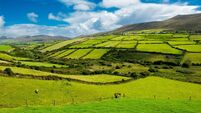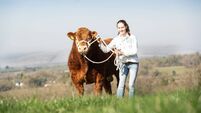Compulsory housing order issued to halt spread of bird flu

Bird flu, which causes the disease is known as HPAI H5N1 and has been in circulation among wild birds over the past year, with 40 cases confirmed by the Department of Agriculture. File Picture: PA
The Department of Agriculture is introducing a nationwide compulsory housing order for poultry and captive birds to halt the spread of bird flu.
The order will be in place from Monday, November 10. A similar measure will be in place for Northern Ireland and the rest of the UK from Thursday, November 6.













